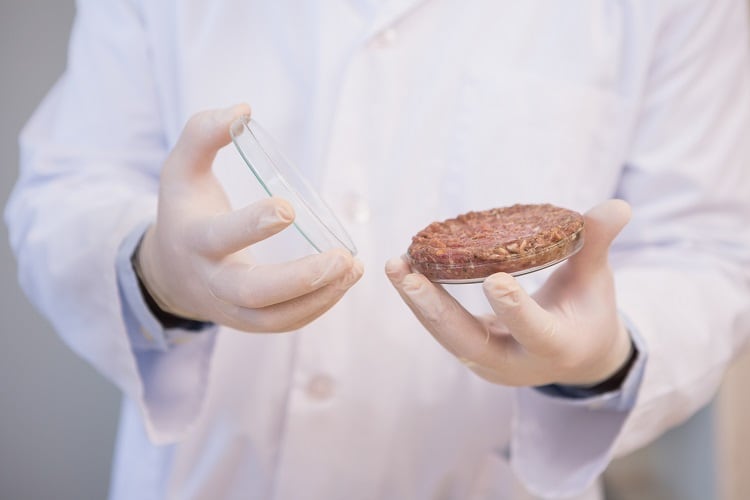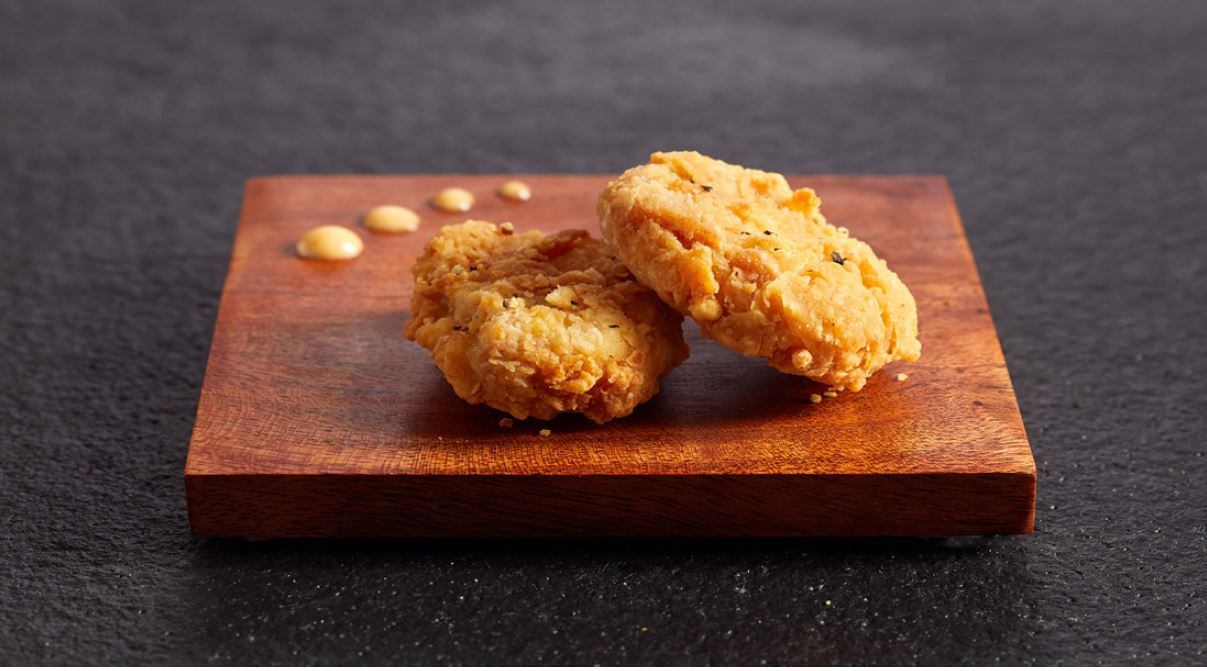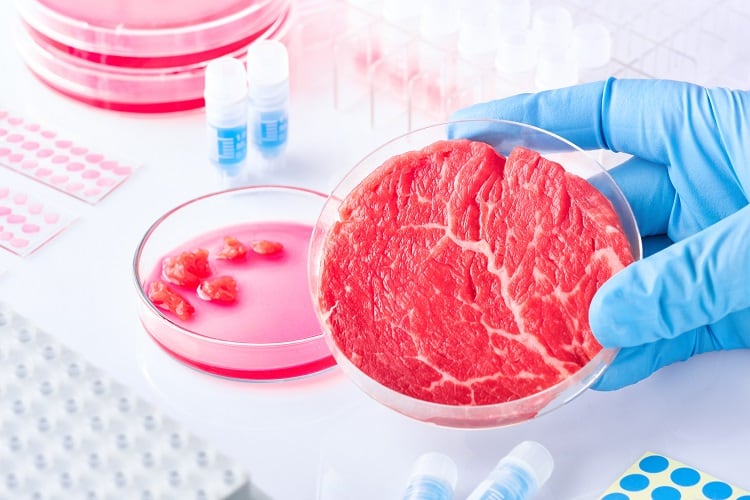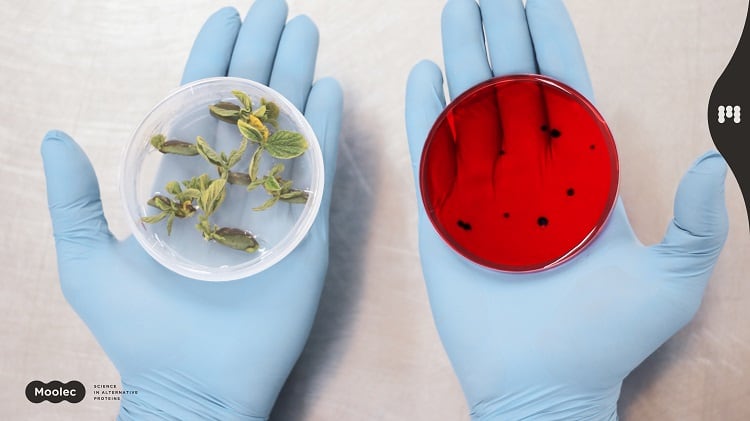The food tech industry rejoiced last week when US company Eat Just received the world’s first cell-based meat approval.
Following Singapore’s regulatory green light, Eat Just will be able to sell its cultivated chicken product – which will be used as an ingredient to make chicken nuggets – to foodservice.
While Eat Just believes success in Asia will encourage Europe to follow suit, not all in the bloc are backing regulatory approval on home ground.
Notably, France’s Food and Agricultural Minister Julien Denormandie took to Twitter last week to make his lack of support for cell-based meat clear.
Cell-based meat? Moi, NON
Just hours after the Singapore Food Agency (SFA) announced approval of Eat Just’s cultivated chicken product on 2 December, Denormandie tweeted: “Is this really the society we want for our children? Me, NON. I say it clearly: meat comes from life, not from laboratories. Count on me that in France, meat remains natural and never artificial!” (own translation)
The tweet sparked a hot debate online: at the time of writing the post has attracted close to 800 comments and has been shared more than 700 times.
French association Agriculture Cellulaire France, which ‘aims to inform and stimulate reflection’ on cellular agriculture, unsurprisingly does not share Denormandie’s view.
In a response to the Minister’s tweet, the association wrote: “It would be a shame to reject outright an innovative method of production that enables France to compete in the growing field of alternative proteins. Instead, let’s promote the development of a French sector that guarantees quality!”
A blow to French food tech?
One would be forgiven for interpreting Denormandie’s tweet as a step backwards for France’s food tech sector, and particularly for those working in cell-based meat.
However, Agriculture Cellular France stressed the minister’s stance is not legally binding. “This tweet is a personal reaction of the current minister to recent events, which is not binding to France either in terms of the present or the future,” a spokesperson told FoodNavigator.
“There are other policymakers and organisations that want the field of cellular agriculture to develop in France. Moreover, the authorisation on novel food is a decision made at the European level.”
Rather, Agriculture Cellular France suggested Denormandie’s tweet could hint to a lack of understanding concerning cell-based technologies. “We think that decisionmakers need to learn what cellular agriculture is to understand better what its potential benefits are for our society,” the spokesperson continued.
French start-up Gourmey, a start-up developing a cell-based alternative to foie gras made from duck egg cells, is also encouraging greater awareness and understanding of cellular agriculture at government level. CEO and co-founder Nicolas Morin-Forest told FoodNavigator he does see a future for cell-based meat commercialisation in France.
“With its culinary tradition and high-quality research ecosystem, France has unique assets to become a leader in the field of alternative proteins and specifically cultured meat,” said Morin-Forest.
“We are encouraging our government to look at cultured meat as an additional option to produce quality meat locally and in a safe and sustainable way. Cultured meat will eventually be on the market around the globe, including in France where consumer acceptance for these products are already quite high. Given how strategic food supply is, we believe every nation should support their local champions in order not to be left behind.”
Singapore approval a ‘positive step’ for Europe?
Cell-based meat stakeholders in Europe have welcomed Eat Just’s approval in Singapore as a ‘positive step’ for cultured meat development.
Gourmey, for example, described the approval as a ‘historical milestone’ that ‘marks the beginning of a new chapter much earlier than many thought’.
“Not only will it incentivise other countries to accelerate the on-going work on their own regulatory approvals, but it will provide data showing that cultured meat is safe to consume, which will be helpful for other jurisdictions. It is also a clear demonstrator that cultured meat is not for 2050, it is a very concrete solution to tackle today’s environmental and sanitary challenges,” Morin-Forest told this publication.
Agriculture Cellular France’s views aligned with those of Gourmey. “We think that this approval is a positive step in cultured meat development. This shows that a first government found a way to regulate this new meat and did it because of the benefits this meat could have,” the spokesperson said.
“This could encourage other authorities to allow cultured meat commercialisation, such as the European Union. They might be encouraged to do so to be competitive in the alternative proteins space, to fight food supply shortage, to help fight antibiotic resistance and zoonotic diseases spread or to strengthen their sovereignty.”
Another player in the European cell-based meat space, Mosa Meat from the Netherlands, said the regulatory approval in Singapore is a ‘great step’ for the cultivated meat industry. “It shows there is a clear path to market in Singapore and we are encouraged to see authorities working with companies to gain approval and start selling products,” we were told.
Mosa Meat is also an example of active investment in the European cell-based meat space. This week, the company announced the second closing of its Series B funding ($20m), which takes its total raised so far in the round to $75m.
When asked whether Dutch ministers share similar views to that of Denormandie, a Mosa Meat spokesperson said the Dutch government is supportive of cultivated meat.
“The technology was created in the Netherlands and is in line with the Netherlands’ ambition to be more environmentally sustainable. We have had very good responses from Dutch policymakers so far.”





